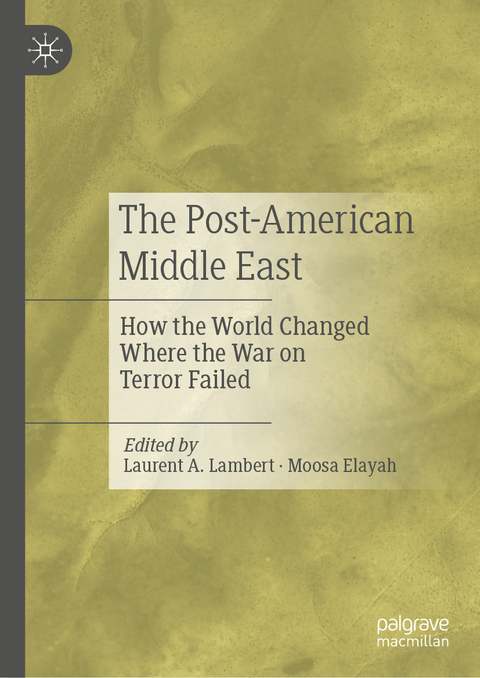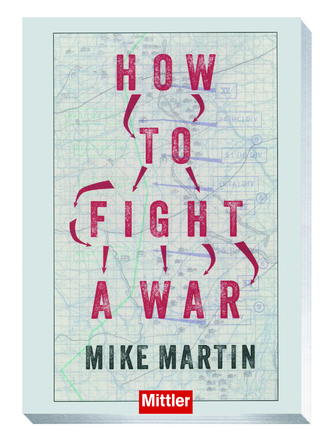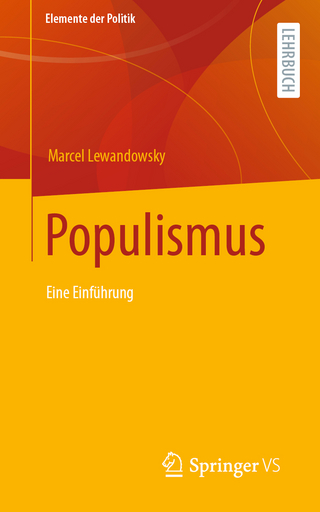
The Post-American Middle East
Springer International Publishing (Verlag)
978-3-031-29911-7 (ISBN)
Chapters 1 and 10 are available open access under a Creative Commons Attribution 4.0 International License via link.springer.com
Dr. Laurent A. Lambert teaches energy policy, climate change politics and diplomacy at the Doha Institute for Graduate Studies and previously taught energy transition and diplomacy at Sciences Po Paris. A former writer/analyst at the French Ministry of Defense, Dr Lambert is also an expert on technology transfer and a former representative of the Research & Non-Governmental Organizations (RINGOs) at the United Nations (2013-2016).
Dr. Moosa Elayah is an Assistant Professor in Public Administration, specialized in Conflict Studies, Peacebuilding, and International Development, at the Doha Institute for Graduate Studies (Qatar) and at Radboud University Nijmegen, the Netherlands.
Chapter 1. Introduction.- Part I - War, Expanding Chaos & Failed State-Building Across the Middle East.- Chapter 2. Afghanistan since 2001: US Geostrategic Ambitions, a Failed State, and the Return of the Taliban.- Chapter 3. Iraq 2003-2007, Geopolitics of an Imperial Democratization.- Chapter 4. Rebel Governance of Oil: The Case of the Houthis in Yemen.- Chapter 5. Wars on Terror in Arab Oil Lands, Russian Interventions, and Chinese Energy Policies: The Case of Northern Iraq and Syria.- Part II - Indirect Consequences of the War on Terror and Legacy.- Chapter 6. Political Instabilities and large-scale migrations in the MENA region: Libyan, Syrian, and Yemeni cases in regional perspective.- Chapter 7. Overcoming Jihadism in Arabia: Tight Counter-Terrorism Policies in the Gulf Monarchies.- Chapter 8. Trump and Netanyahu's Failed Palestine Sell-out: 'A hate plan, not a peace plan'.- Chapter 9. Natural Gas and Regional Energy Dis-integration in the Middle East.- Chapter 10. Conclusions.
| Erscheinungsdatum | 20.06.2023 |
|---|---|
| Zusatzinfo | XVI, 11 p. 28 illus., 19 illus. in color. |
| Verlagsort | Cham |
| Sprache | englisch |
| Maße | 148 x 210 mm |
| Gewicht | 467 g |
| Themenwelt | Sozialwissenschaften ► Politik / Verwaltung ► Vergleichende Politikwissenschaften |
| Schlagworte | Afghanistan • American foreign policy • Energy geopolitics • Iraq • Jihadism • War on Terror |
| ISBN-10 | 3-031-29911-6 / 3031299116 |
| ISBN-13 | 978-3-031-29911-7 / 9783031299117 |
| Zustand | Neuware |
| Haben Sie eine Frage zum Produkt? |
aus dem Bereich


